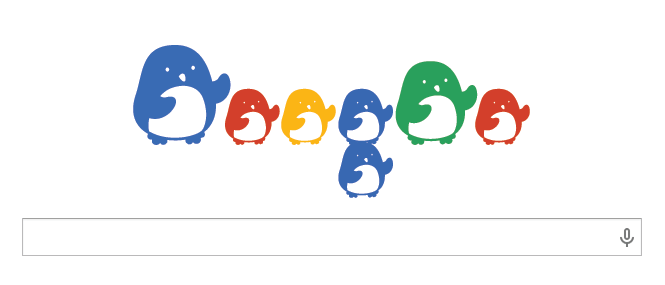
The is the second installment of our newest Delucchi Plus blog feature, On The Brink, in which our Senior Search Marketing Specialist and resident Batman expert Jonathan Brinksman breaks down the latest and greatest trends in digital marketing. Whether you’re a seasoned expert or total newbie, Jonathan will be offering expert, accessible insight into the ever-changing digital world.
For those of you who aren’t search marketing nerds, you might not have heard that Google unveiled its latest algorithm update to their Penguin filter this past Friday. This is especially significant, since the previous update to Penguin was notoriously controversial, but more on that later. Also, it took them over a year to release this update – which is highly irregular for Google.
The jury’s still out on this most recent update (since we’re only looking at a few days worth of data), but the overall sentiment thus far is one of relief. But to understand why the last update was so controversial and what this latest update aims to do, we need to first have a conversation about Domain Authority.
Let’s start with the basics. What is Domain Authority? Created by inbound marketing company Moz, Domain Authority is an SEO metric to measure the influence of your website. Domain Authority is the best metric for gauging the overall efficacy of your content (remember, content is king). And do you know the best way for Google to determine the authoritativeness of your domain? That’s right, kids: I’m talking about inbound links!
Basically, it looks like this:
Other websites link to your website. It’s not necessarily about quantity as much as it is quality, though. If a website has a high domain authority themselves, and they are linking to your site (thereby signaling Google that you are an authority on a subject), that link is inherently worth more than several other links from far less authoritative websites.
However, what if you’ve got a lot of links coming to your site? Like, a seriously suspicious amount? I’m talking about a crazy, “okay actually, what is going on here” amount of inbound links? Wouldn’t that ultimately be just as good as having a very few, but highly qualified links? That would look something like this:
Well, Google has indicators in its Penguin algorithm that it looks at to determine whether or not the links that you have coming to your site are “spammy.” If they are, Google will punish you, and your Domain Authority will take a hit. Ultimately, this will cause your Organic Search rankings to drop and, ipso facto, so too will your Organic Search traffic. Bad news bears.
That’s all well and good, but the big problem that arose last year with Google’s update to Penguin in October 2013 was that Google scorched the Earth and started flagging links left and right as being spammy. Many webmasters even claimed that legitimate links were suddenly robbed of their value, and a lot of publishers and webmasters were instantly hurt.
Now, it should be noted that Google provides tools to help you disavow links that are hurting you, and many of these webmasters did just that in order to see their rankings increase again. However, there’s a catch: Google doesn’t register these disavowed links until the next Penguin update, and as I said at the top of this blog post, it took Google over a year to update Penguin, which means that a lot of people have been angrily waiting for this update. The biggest issue with the last update to Penguin was that if you were negatively impacted by their changes, there was nothing at all that you could do to fix your issues.
Google has said that the update took so long because they wanted to get it right. Obviously, figuring out which is a valid link and which is a spammy link can be complicated, and clearly they messed up with the last release, so I think it’s understandable on their part to really take their time. However, Google’s got to do a lot more to support webmasters. Organic traffic is almost always the most important channel for any website, and being punished by Google even when you’re meeting all of their best practices is, to say the least, frustrating.
Fortunately for Google, they’re the only game in town (well, the biggest game, anyway). Webmasters can thump their chests all day and night about being wronged, but at the end of the day, we’re all still marching to the beat of Google’s drum. Even though sometimes we’re not always happy with the tempo.
Posted By
Categories
On The Brink, Plus Points
Tags
Google Penguin, Inbound marketing, SEO